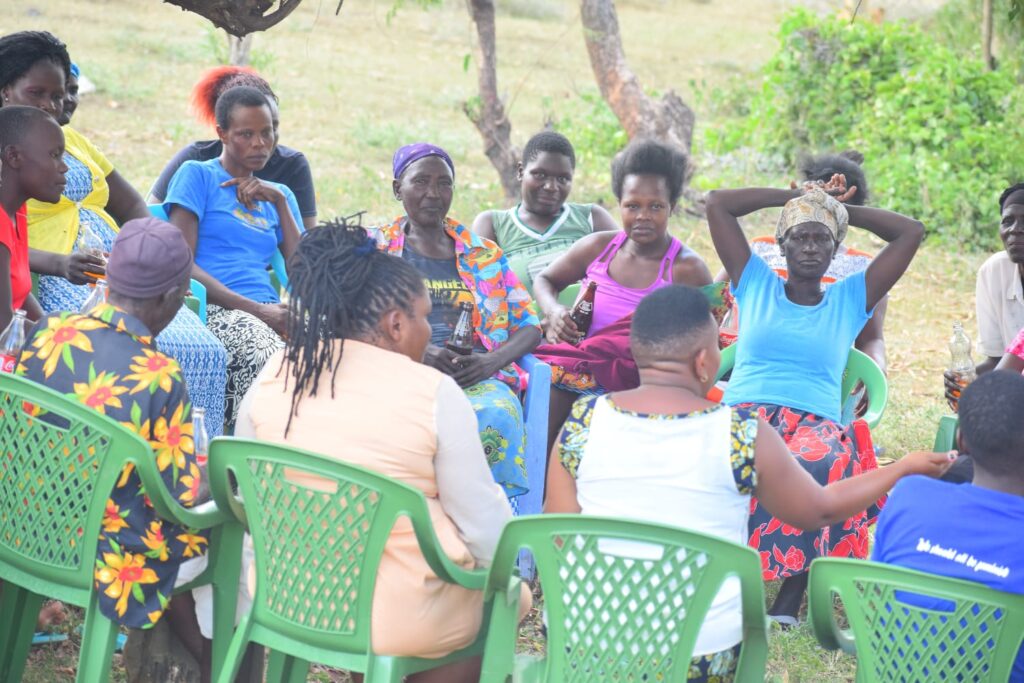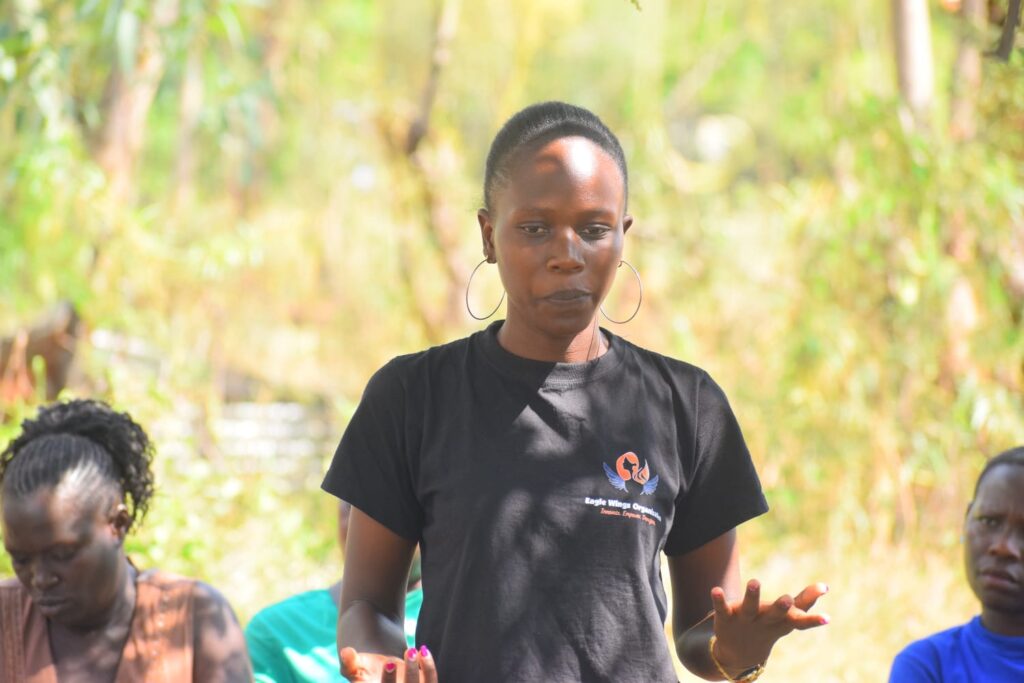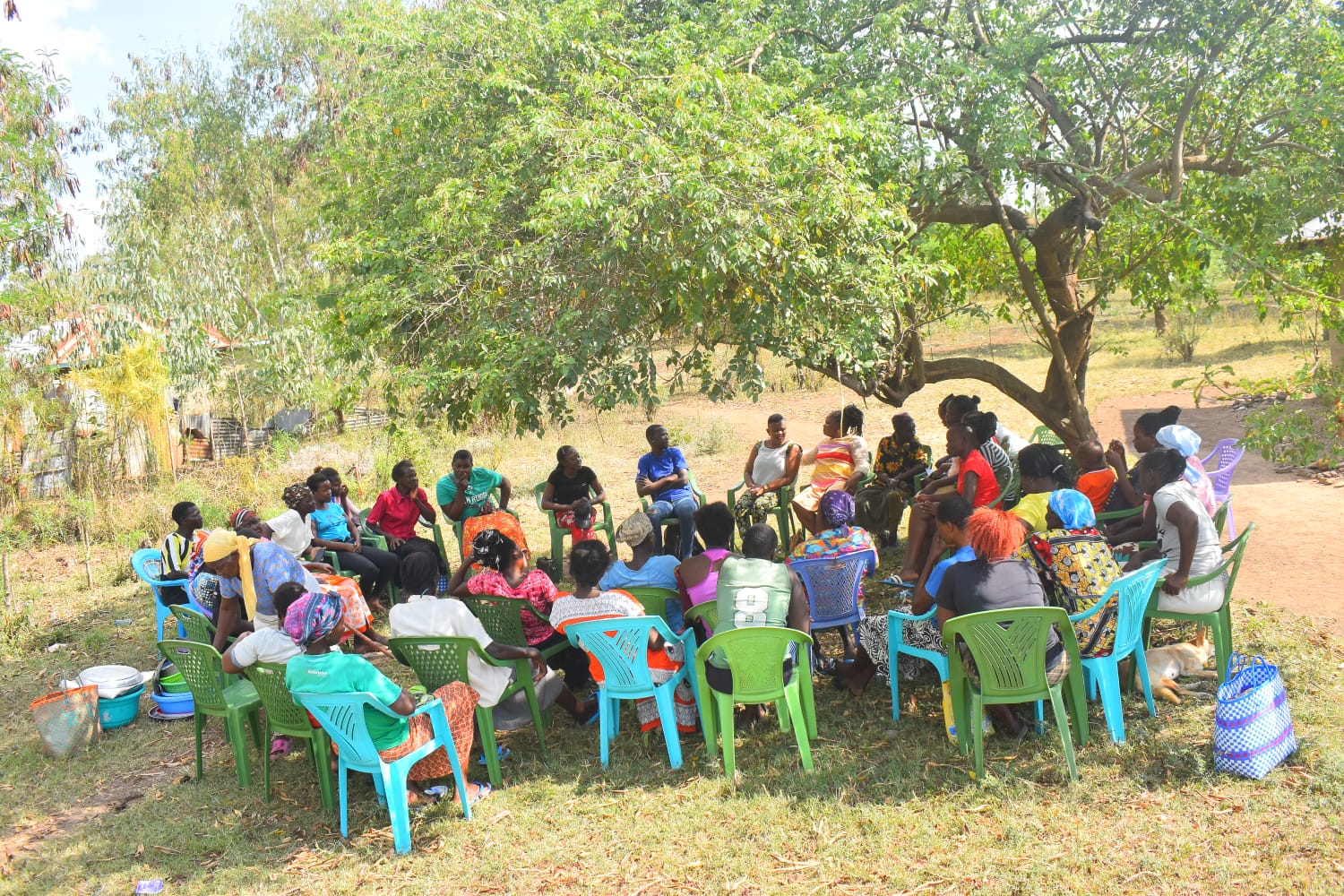Gender-Based Violence (GBV) is a pervasive issue that affects individuals and communities worldwide and in the ongoing battle against Gender-Based Violence (GBV), community engagement and awareness play pivotal roles. As Eagle Wings, We are dedicated to promoting gender equality and preventing GBV through our Dialogue Mtaani project. Here is glimpse of our recent thought-provoking dialogue session with women’s groups in the village of Rabuor-Korowe in partnership with Peperusha Binti
Why? You would ask. Our aim is to foster a deeper understanding of consent and boundaries as fundamental pillars in the prevention of GBV.

Consent is the voluntary, informed, enthusiastic, and ongoing agreement between all parties involved in any activity, especially in intimate or sexual contexts. Our team emphasized on the fact that consent is not just about saying ‘yes’ or ‘no’ in a sexual context. It also includes the importance of freely given, informed, enthusiastic, and revocable agreement in any situation. Consent should never be assumed, coerced, or obtained through pressure.Things to note about consent include:
- Understanding personal bound
- aries and the boundaries of others is crucial to self respect and also respect to others and helps with being aware on how to respond to requests.
- In GBV prevention, the mantra “No means no, and yes means yes” is vital. Consent must be affirmative and unambiguous. Silence, coercion, or
 intimidation cannot be considered consent.
intimidation cannot be considered consent. - Effective communication is vital in establishing consent and boundaries and practicing these skills helps in creating a culture of mutual respect.
- A key takeaway was that consent is an ongoing process. It can be withdrawn at any time, and partners should always be attentive to non-verbal cues and verbal feedback.
For many women in Rabuor-Korowe, this dialogue session was the first time they openly discussed issues related to consent and boundaries. Breaking the silence and stigma around GBV is a crucial step towards prevention. After session talk clearly showed how most young women engaged felt empowered to assert themselves and set boundaries in their relationships. As a women group, the dialogue also fostered a sense of solidarity among them. They also showed interest to share what they had learned with other community members.
 The session was not just about learning; it was about empowerment, solidarity, and hope. As we celebrate these small victories in the ongoing battle against GBV, we recognize with continued dialogue and education, we can work together to eradicate GBV and create a future where everyone’s boundaries are respected, and consent is unequivocally valued.
The session was not just about learning; it was about empowerment, solidarity, and hope. As we celebrate these small victories in the ongoing battle against GBV, we recognize with continued dialogue and education, we can work together to eradicate GBV and create a future where everyone’s boundaries are respected, and consent is unequivocally valued.
